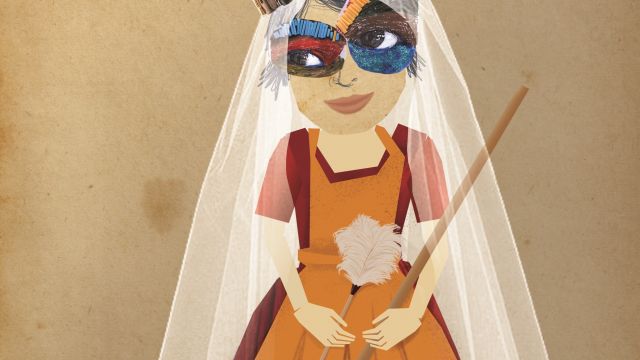Say No More
To create Say No More, a unique cross-artform work, over sixty women of all ages from Malaysia, Indonesia and Australia came together in 2017 to talk about what is happening for them right now as women. Guided by Tutti Arts from Adelaide, ACS Stepping Stone in Penang and Perspektif Kommunitas in Yogyakarta, they developed art, film and live performance within the setting of a wedding reception, which is how we’re greeted when we arrive at The Meeting Hall in Adelaide.
The excited audience is already creating a buzz in this small venue: the Gadhan Arcadian Ensemble are playing soft music on the stage and we are encouraged to walk around before the show begins – looking at the arts installations around the edges of the hall. Amongst them, there is a wall of bras-with a peephole to see what’s behind, bold paintings like stained glass windows and a collection of short films that echo the stories we’re about to hear.
Once we are seated cabaret style, the live performance begins with a grand entrance of brides. These women from Australia, Indonesia and Malaysia wear dresses of their own tradition, and they dance with great joy into the hall. The brides start to tell their own stories: of family, of marriage, and of their relationship to the state, its culture and religion.
The wonderful performers are diverse: some are autistic, others have Down’s Syndrome, some are in wheelchairs and a deaf Muslim woman signs her stories. The stories are raw and challenging. The words – often in more than one language – tell us of the women’s expectations of family, of their partners and of how their own views were not heard – if they were even spoken.
Catherine Fitzgerald’s sensitive direction takes us on a journey that has a lot of darkness, yet still finds light. They share their stories from in front of us, behind us or beside us: the excellent lighting, designed by Susan Grey-Gardner, helps us find the speakers around the hall and Nigel Sweeting’s unobtrusive sound design ensures we hear every word.
When we’re focused on the words of each performer, we barely notice the detail in the costumes, designed by Mawarini: the fantastic head-pieces-one of which contains children’s toys, even a doll, the beautiful wedding blues and pinks, blacks and whites and one dress that is covered in cockroaches!
There are moments of celebration – but a cacophony of laughter and cheers is interrupted by a scream. Begging for help, a woman in a blood-stained dress tells us of her violent partner: it’s confronting and raw. There are other stories of abuse, from partners, fathers – and mothers; sometimes there are contrasting views, of how the family show their love.
No subject is taboo: sex, particularly issues of consent, is discussed with unflinching honesty and fierce bravery.
There is an intimacy in the performers where you cannot avert your eyes, particularly in this smaller venue, where the women move amongst us, where we can feel their frustration, their pain – and their joy.
The main themes of the narrative are of the challenges of living in societies, those made by men, not women, as well as the ‘how’ and ‘why’ of disability: difference is so often feared, or perceived as ‘less than’. Yet the courage of these women is what remains long after the show: despite (and perhaps, because of) their stories, they are strong – and proud.
When Pat Rix, the producer and musical director of this show, leads them in song, there is such genuine happiness from all of the performers, smiles that transcend culture and disability.
The audience joins the women in their rhythmic hand clapping through the lyrics, and we applaud them, loudly.
Mark Wickett
Subscribe to our E-Newsletter, buy our latest print edition or find a Performing Arts book at Book Nook.

